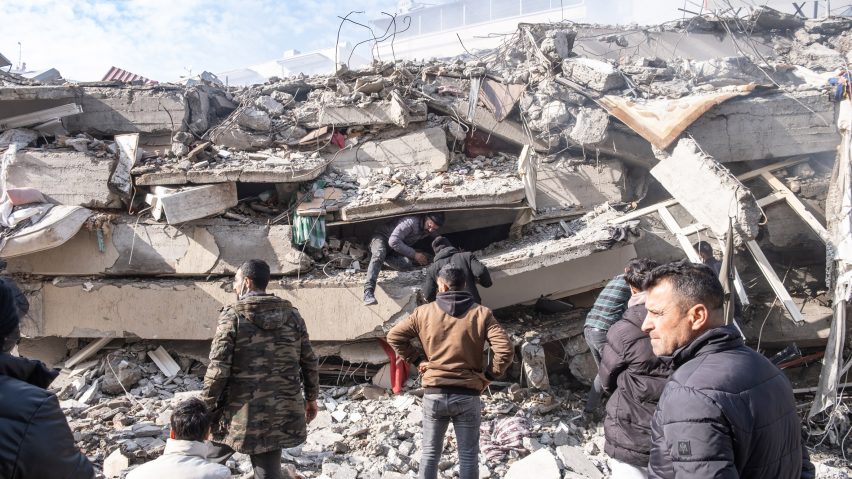Authorities in Turkey have issued arrest warrants to more than 100 people with ties to buildings destroyed by the devastating Turkey-Syria earthquake last week.
Turkey's vice-president Fuat Oktay said 131 contractors, architects and engineers linked to collapsed buildings have been identified following the tragic quakes, which struck parts of Turkey and Syria on 6 February.
At least 12 of those suspects have already been taken into custody, the Guardian reported.
The arrest warrants come as the death toll reaches more than 31,000 people in southern Turkey, and over 5,700 in north-west Syria, with these numbers expected to dramatically rise as rescue workers continue to search the rubble for survivors.
According to Reuters, vice-president Oktay said that the justice ministry has set up earthquake crimes investigation bureaus in the affected Turkish provinces.
"We will follow this up meticulously until the necessary judicial process is concluded, especially for buildings that suffered heavy damage and buildings that caused deaths and injuries," he said.
Poor construction quality exacerbated destruction
Of more than 170,000 buildings across the south of Turkey, 24,921 have either collapsed or been severely damaged, said the Guardian. Many of these were 21st-century apartment blocks.
One of them was a 12-storey complex built a decade ago in Antakya by contractor Mehmet Yasar Coskun, who was detained at Istanbul airport before boarding a flight for Montenegro and has since been arrested.
The contractor told prosecutors he did not know why it had collapsed, Reuters reported.
"We fulfilled all procedures set out in legislation," Coskun told local news agency company Anadolu. "All licenses were obtained."
It is widely believed that the poor construction of buildings in Turkey has exacerbated the scale of the quake's destruction. The recent arrests are seen by some as an effort to divert blame from the Turkish government.
The quality and safety of buildings in Turkey have been under scrutiny since the 1999 Izmit Earthquake, which prompted more stringent construction regulations.
However, Turkish president Recep Tayyip Erdoğan's government has been accused by opposition leaders of failing to properly enforce these standards.
This is partly due to so-called "construction amnesties" in Turkey, which are essentially legal exemptions for fees for structures built without the required safety certificates to encourage a construction boom.
Turkish president blames "destiny's plan"
Yet, president Erdoğan rejects these claims and blames the scale of the disaster on fate.
"Such things have always happened," said Erdoğan, the BBC reported. "It's part of destiny's plan."
In another report by the BBC, up to 75,000 buildings across the affected earthquake zone in southern Turkey were given these construction amnesties.
This was backed by University College London professor David Alexander who said that the earthquake was "not necessarily [large] enough to bring well-constructed buildings down".
"The maximum intensity for this earthquake was violent but not necessarily enough to bring well-constructed buildings down," said Alexander, who specialises in emergency planning and management.
"In most places the level of shaking was less than the maximum, so we can conclude out of the thousands of buildings that collapsed, almost all of them don't stand up to any reasonably expected earthquake construction code."
In an opinion piece on Dezeen, founder of Worldchanging Institute Cameron Sinclair said that "earthquakes don't kill people, bad buildings do".
Following the earthquake, aid for Turkey has flowed in from around the world, but recovery efforts in Syria are lagging because of political divisions. Today, Syria's government agreed to open two more border crossings to allow aid to be delivered more effectively.
The main photo is by Doga Ayberk Demir via Shutterstock.

